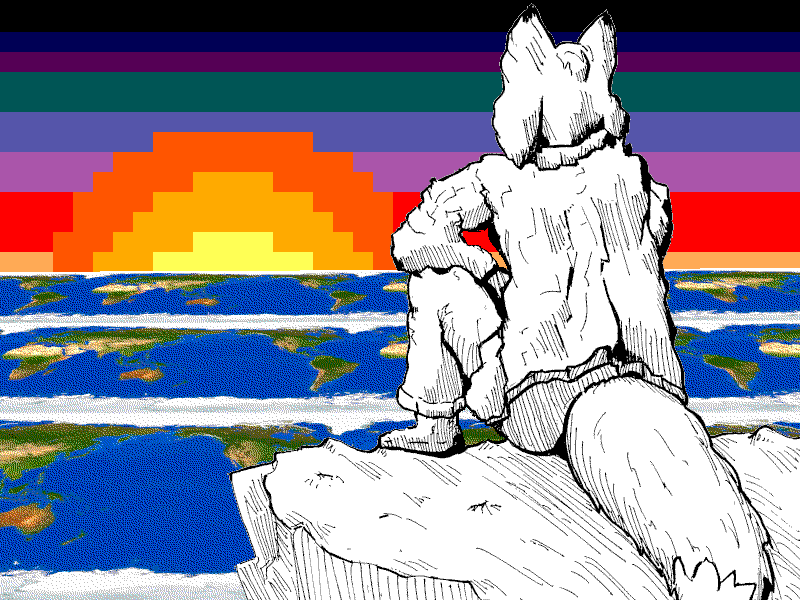Cartooning the Screen originates from a certain kind of dream I had as a kid, one where game graphics didn't "progress" in the 90's, but instead maintained the abstract quality of the early arcade games. People talked about them, wrote articles, featured those graphics in magazine covers.
But it's also about what those people would talk about, which is how it all works — the genuine fundamentals of video games. This is also something that I found just wasn't there when I looked. Professional game development burned through people so quickly that there was scarcely any institutional knowledge. The public articles and lectures you could find were career-builders or product PR. The early Internet made it easy to encounter people who directed their personal frustrations into gatekeeping behavior. The people who were gaining the knowledge were too busy to even fully digest what they were experiencing. I've heard it from others that they didn't know how to make games, actually, until they were decades into a career.
This is an space to meditate on my journey, covering the technical, historical and creative aspects of "video games" but also "computing". It's "cartooning" because the approach we are looking at is about what can be done with a "less is more" attitude, the same one that drives comics and manga storytelling. Perhaps there's a new way of doing things coming around the corner, and we can build it together.
One of the difficulties I've had in writing this is: Where's the beginning? The beginning isn't really about "games" or "computers" or "cartooning". It isn't a linear, chapter narrative. It's more like a map, so I built a website that has a map, and assigns a color to each article to suggest related themes. It can still work like a regular blog, and let you view lists by date or alphabetically, but it let me develop what I was doing as a set of connected articles, without the explicit nature of tags or hyperlinks.
Many of these articles are of a technical nature, but the format is more "zine" than "textbook" — I'm cherry-picking the stuff that seems most important.
